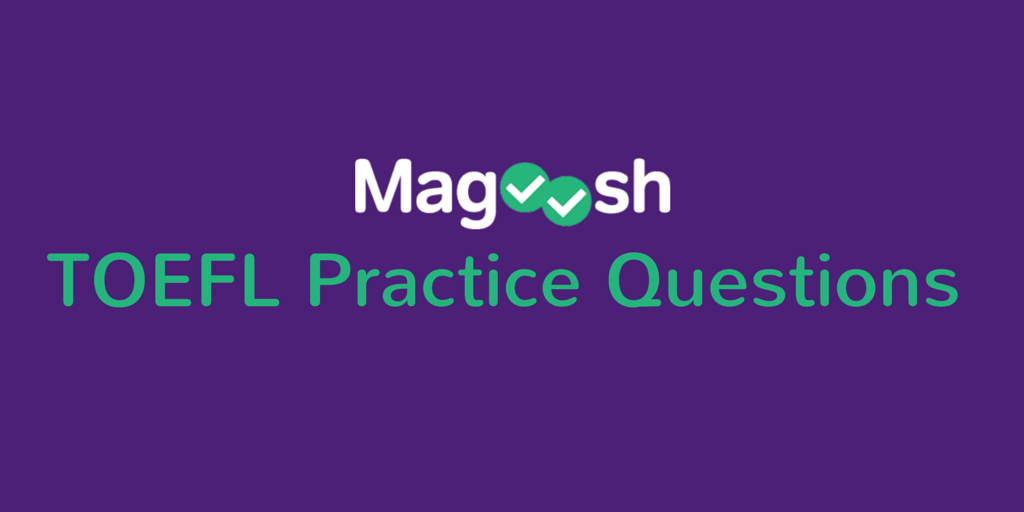So far, we’ve covered how to predict your TOEFL score for Reading, Listening, and Speaking. Today: the math for TOEFL Writing score predictions.

How to predict your TOEFL score for Writing: A Step-by-Step Guide
Step 1: Get your TOEFL Writing responses scored
One tricky aspect of predicting your TOEFL score for Writing is getting your practice TOEFL Writing Tasks scored. You can’t just count up the number of right and wrong answers like you would in TOEFL Reading and Listening practice. Instead, you need to get your responses scored with the same rubrics that ETS uses.
The official TOEFL Writing rubrics are publicly available on the ETS website. To predict your TOEFL Writing Score, your could carefully go through these rubrics, using them to estimate the scores on your own practice essays.
Self-scoring is pretty difficult though, and not necessarily reliable. You may not be able to judge your own writing with accuracy. So you should probably try to get feedback and unofficial TOEFL Writing scores from others.
One solution is to subscribe to Magoosh TOEFL. With a premium-level subscription, you can submit TOEFL essays to us for feedback and scoring. But if you aren’t ready to subscribe (or even try a free one week trial) just yet, Magoosh can still help! Our blog has plenty of advice on how to get TOEFL Writing Feedback. Here are some articles that can help you get the unofficial scoring you need for this first step in predicting your TOEFL score for writing.
- Getting Feedback on Your TOEFL Writing
- Choosing a TOEFL Tutor
- Places to Find TOEFL Tutoring Online, Part 1
- Places to Find TOEFL Tutoring Online, Part 2
- The Best TOEFL Forums
Step 2: Average the scores of both tasks
TOEFL Writing has 2 tasks. These tasks have the same point weight; each task represents 50% of your TOEFL Writing score. If you average your practice scores for both tasks, you’ll have a score for the whole TOEFL Writing Section.
Let’s imagine that on a TOEFL practice Writing Section, you got a score of 3.5 for the Integrated Writing Task, and a 4.5 for the Independent Writing Task. To get your average for the whole section, add these two scores together and divide by two. 3.5 + 4.5 = 8. 8/2 = 4. So your average Task score for this practice Writing section would be 4.
Step 3: Convert your average task scores into percentage scores
Next, you need to turn your average Writing task score into a percentage score for your practice Writing section.
To do this, divide your average task score by the maximum possible task score. For a TOEFL Writing Task, the maximum number of points is 5. The above-mentioned Writing Task average is 4, which gives us 4/5, or 0.8 — and 80% section score.
Step 4: Convert your percentage scores into scaled TOEFL scores
Just like all the other TOEFL sections, TOEFL Writing is scored on a scale of 0-30 . To figure out where your practice Writing Section lies on that scale, apply your percentage score to the number 30. In the Writing Section scores above, 80% of 30 = 0.8*30 = 24. Thus, you can predict a TOEFL Writing Score of 24 based on the practice performance described in this blog post.
Other factors
In statistics, a prediction is only valid if it’s based on repeated samples and experiments. This means you should complete and score multiple TOEFL Writing Sections, not just one. Take the scores of several practice sessions and average them together. This multiple-section average will be the most accurate predictor of the real TOEFL Writing Score you might get on test day.
And remember, all TOEFL scores are norm-referenced. Your raw score on the exam may be adjusted by a few points. Still, the prediction methods I’ve described above should help you get pretty good idea of the TOEFL Writing Score you’ll get.





